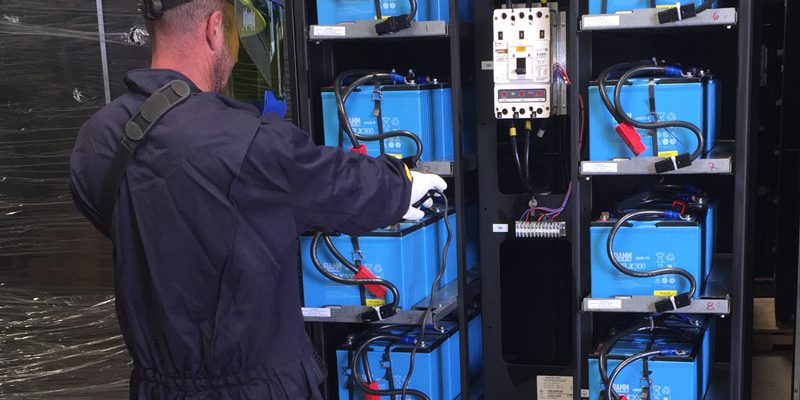Uninterruptible Power Supplies (UPS) are essential in ensuring consistent power for critical operations, from data centers to industrial environments. A key component of any UPS system is its battery. Regular UPS battery maintenance is crucial to extending the life of your system and ensuring uninterrupted power during outages. Neglecting battery maintenance could lead to costly downtime or even equipment failure.
Why Maintenance Matters UPS batteries typically have a finite lifespan, often between 3 to 5 years. Over time, they degrade due to factors such as temperature fluctuations, frequent discharging, and even the quality of the initial installation. Without proper maintenance, you risk sudden power loss during a critical moment. Regular checks help to identify potential issues early, preventing costly disruptions.
Steps for Regular Maintenance
- Visual Inspection: Regularly inspect batteries for any physical damage, corrosion, or leakage. Replace any compromised units immediately.
- Battery Testing: Perform regular tests such as load tests to measure performance and ensure that the batteries are holding a proper charge.
- Environment Management: Keep batteries in a temperature-controlled environment (ideally around 20°C or 68°F) to avoid premature degradation. Extreme temperatures can shorten battery life significantly.
- Cleaning Connections: Corroded terminals can hinder performance. Clean the battery terminals and ensure connections are tight to avoid inefficiencies or risks of short circuits.
- Replacing Expired Batteries: Keep track of battery age. Even if they pass tests, older batteries should be replaced before they reach the end of their operational life.
Conclusion Regular UPS battery maintenance extends battery life, improves system reliability, and prevents unexpected failures. Make maintenance a priority to ensure your UPS is ready when you need it most.


